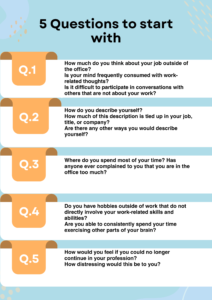Look Beyond the Job: Think before Making Your Career Your Entire Identity
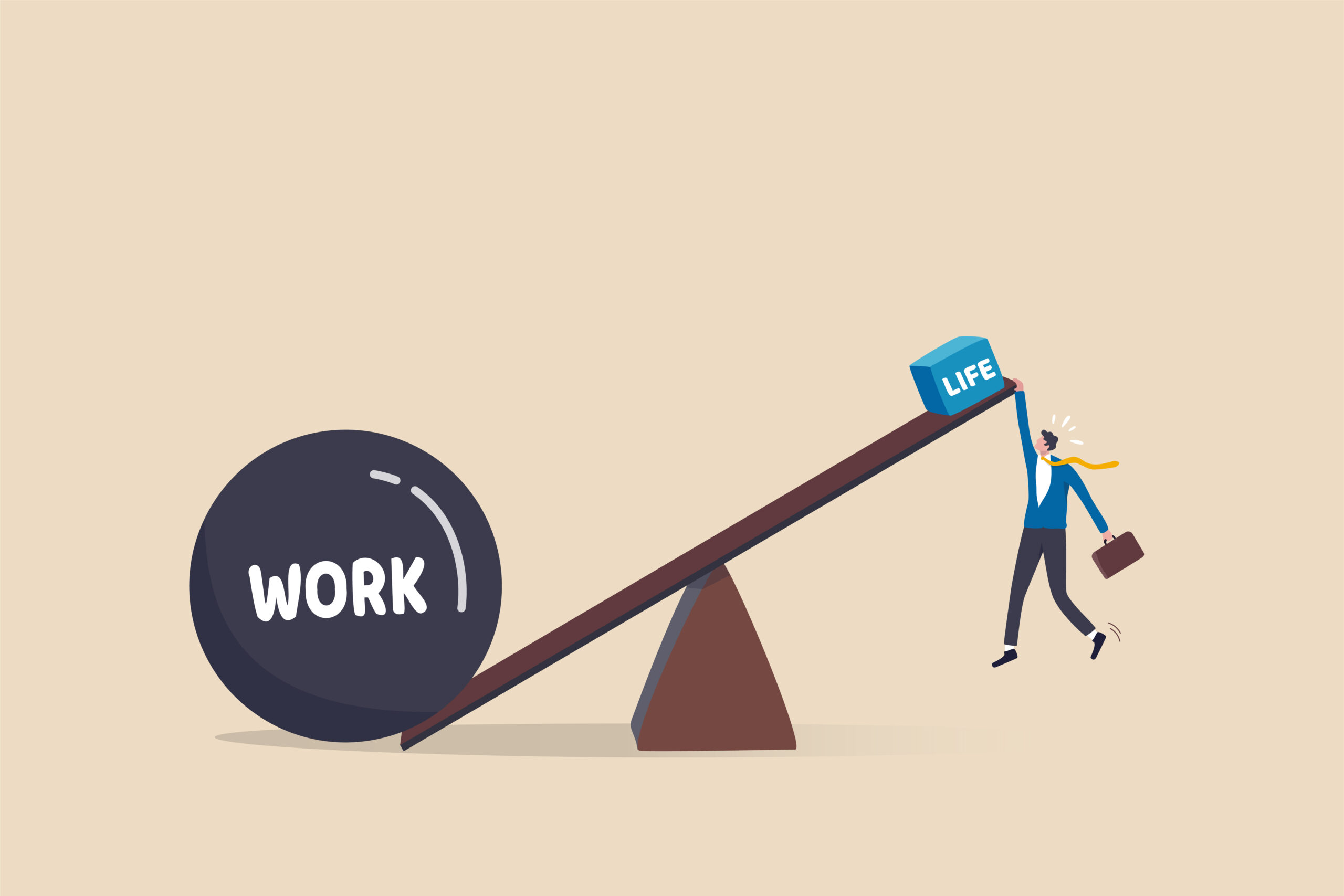
Table of Contents
For many people, their careers are a significant part of their lives. They often provide a sense of purpose, accomplishment, and direction. However, when we become too invested in our jobs, it can be dangerous. Not only can it lead to burnout, but it can also rob us of our sense of self and perspective.
In India, there is often a strong emphasis placed on career success and prestige, particularly in fields such as medicine, engineering, and law.
Many individuals in these fields may feel pressure to devote all of their time and energy to their jobs to the point where their career becomes their entire identity.
This can lead to negative consequences, such as burnout and feelings of inadequacy, as well as difficulty adapting to changes in their career or personal life.
The Dangers of Career-Driven Identity
Burnout
When we become too invested in our careers, we risk burning out.
Burnout is a state of emotional, physical, and mental exhaustion that occurs when we are unable to keep up with the demands of our work.
It can cause us to feel overwhelmed, anxious, and depressed.
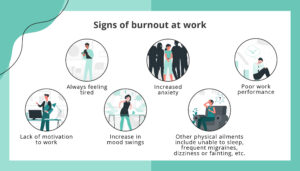
Image source:gradsingapore
Burnout can have serious consequences on our health and well-being, and it can take a long time to recover from it.
Loss of Perspective
When we identify too closely with our jobs, we can lose perspective on what really matters in life.
We may begin to prioritise work over our personal relationships, hobbies, and interests.
This can lead to a sense of isolation and loneliness, as well as a feeling of disconnection from the world around us.
We may also lose sight of our values and beliefs as our careers become the sole focus of our lives.
Lack of Fulfilment
While our careers can provide a sense of purpose and accomplishment, they cannot provide us with everything we need to be happy.
It’s important to have a well-rounded sense of self that includes hobbies, interests, and relationships outside of work.
If we don’t have anything else that brings us joy and fulfilment, we risk feeling unfulfilled and dissatisfied with our lives.
Vulnerability to Job Loss
If your job is the only thing that gives you a sense of purpose and identity, losing your job can be devastating.
You may feel like you have lost a part of yourself, and it can be difficult to know how to move forward.
By developing a more well-rounded sense of self, you can mitigate the impact of job loss and be better equipped to handle difficult times.
The current corporate scenario
High competition
In our country, there is often intense competition for jobs, especially in certain fields.
This can lead individuals to focus all their energy on their careers in order to stay ahead of the competition.
However, this can also lead to burnout and a lack of fulfilment.
Family pressure
In many Indian families, there is a strong emphasis on career success as a means of achieving social status and financial stability.
This can lead to pressure on individuals to prioritise their careers over other aspects of their life.
Retirement
In India, retirement is often seen as the end of one’s career and a loss of identity.
This can be particularly challenging for individuals who have based their entire identity on their job.
It is important for individuals to plan for their retirement and think about ways to find meaning and purpose outside of work.
Mental health
In recent years, there has been a growing recognition of the importance of mental health in India.
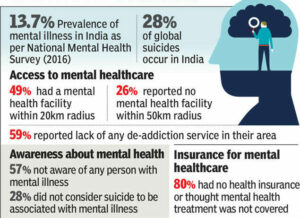
Source:TOI
The negative consequences of basing one’s identity on their career, such as burnout and feelings of inadequacy, can have a significant impact on mental health.
According to a survey by India Today more than 36% of Indian employees are suffering from mental health issues
It is important for individuals to prioritise their mental health and seek support if needed.
Work-life balance
Work-life balance is often difficult to achieve, especially for individuals in demanding careers.
However, it is important for individuals to prioritise their personal lives and find ways to maintain a healthy work-life balance in order to avoid burnout and maintain overall well-being.
Tips for Maintaining a Healthy Work-Life Balance
Set Boundaries
One of the most important things you can do to maintain a healthy work-life balance is to set boundaries.
This means establishing clear limits on when and how much you work.
For example, you might decide to stop checking your work email after a certain time in the evening, or you might make a commitment not to work on the weekends.
By setting boundaries, you can create space for other important aspects of your life.
Pursue Hobbies and Interests Outside of Work
Another important way to maintain a healthy work-life balance is to pursue hobbies and interests outside of work.
This can be anything from reading to hiking to painting to cooking.
The key is to find something that you enjoy and that allows you to connect with the world in a meaningful way.
Pursuing hobbies and interests can provide a sense of fulfilment and purpose that is separate from your job.
Cultivate Relationships Outside of Work
Finally, it’s important to cultivate relationships outside of work.
This can include spending time with family and friends, participating in community activities, or volunteering.
Building meaningful connections with others can help you feel less isolated and more connected to the world around you.
It can also provide a sense of support and encouragement when you need it most.
Practice Self-Care
Taking care of yourself is an essential part of maintaining a healthy work-life balance. This includes getting enough rest, exercise, and healthy food.
It also means taking time to do things that relax and rejuvenate you, such as meditation, yoga, or a hot bath.
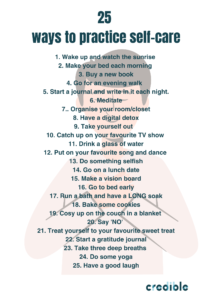
By prioritising self-care, you can reduce stress and anxiety and be better equipped to handle the demands of your job.
Consider Therapy or Counselling
If you’re struggling to maintain a healthy work-life balance, or if you feel like your job is taking over your life, consider therapy or counselling.
A mental health professional can help you identify patterns of behaviour and thought that may be contributing to the problem, and provide strategies for managing stress and anxiety.
They can also provide a safe space to explore your feelings and emotions and help you develop a more balanced sense of self.

